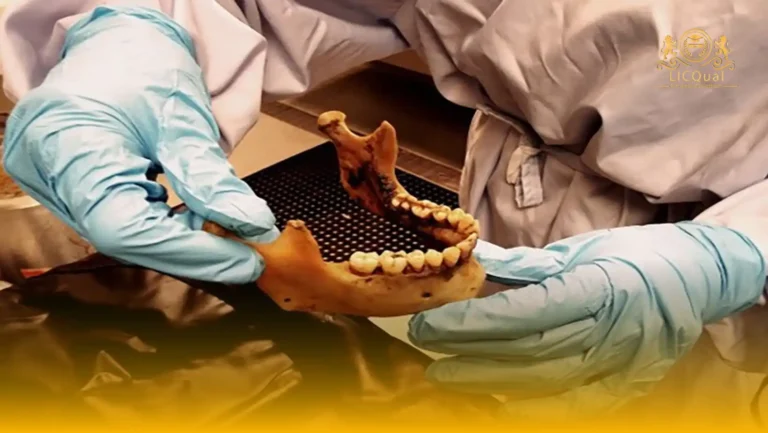The LICQual Level 7 Postgraduate Diploma in Palliative Medicine (PgDPM) is a highly specialised programme designed for experienced healthcare professionals who wish to advance their knowledge and expertise in the field of palliative care. This postgraduate diploma is not intended for fresh candidates but is specifically aimed at doctors, nurses, and healthcare practitioners who are committed to improving the quality of life for patients with life-limiting illnesses.
Through this qualification, learners will develop advanced clinical skills, critical thinking, and evidence-based approaches to managing pain, providing emotional support, and addressing the complex needs of patients and their families. The programme emphasises holistic and compassionate care, preparing professionals to take on leadership roles in hospitals, hospices, community care, and research institutions.
The PgDPM supports learners in expanding their professional capabilities, enhancing career progression, and contributing to Continuing Professional Development (CPD). By combining theoretical knowledge with practical applications, this diploma ensures that learners are well-prepared to face the challenges of modern palliative medicine and to uphold the highest standards of patient care.
Centres delivering this qualification must ensure they have competent and qualified staff with expertise in palliative and clinical medicine. In addition, centres are required to provide appropriate facilities, updated learning materials, and reliable digital resources to guarantee high-quality training and successful learner outcomes.
This internationally recognised postgraduate diploma equips healthcare professionals with the knowledge, skills, and confidence to make a meaningful difference in the lives of patients and their families, while strengthening their own career prospects in a highly valued medical specialty.
Course Overview
Qualification Title
LICQual Level 7 Postgraduate Diploma in Palliative Medicine (PgDPM)
Total Units
6
Total Credits
120
GLH
600
Qualification #
LICQ2200966
Qualification Specification
To enroll in the LICQual Level 7 Postgraduate Diploma in Palliative Medicine (PgDPM), applicants must meet the following criteria:
|
Qualification# |
Unit Title |
Credits |
GLH |
|---|---|---|---|
|
LICQ2200966-1 |
Principles and Practices of Palliative Care |
20 |
100 |
|
LICQ2200966-2 |
Symptom Management in Palliative Medicine |
20 |
100 |
|
LICQ2200966-3 |
Psychosocial, Spiritual, and Cultural Aspects of Care |
20 |
100 |
|
LICQ2200966-4 |
Ethical and Legal Considerations in Palliative Medicine |
20 |
100 |
|
LICQ2200966-5 |
Palliative Care in Special Populations (Paediatrics, Geriatrics, and Complex Cases) |
20 |
100 |
|
LICQ2200966-6 |
Research Methods and Evidence-Based Practice in Palliative Medicine |
20 |
100 |
By the end of this course, learners will be able to:
Unit 1: Principles and Practices of Palliative Care
- Critically analyse the principles, philosophy, and multidisciplinary approaches in palliative medicine.
- Evaluate the role of palliative care within healthcare systems and community settings.
- Apply patient-centred strategies to enhance quality of life for individuals with life-limiting conditions.
- Integrate holistic care practices into clinical decision-making and service delivery.
Unit 2: Symptom Management in Palliative Medicine
- Assess and manage complex physical symptoms including pain, respiratory, and gastrointestinal issues.
- Apply evidence-based strategies for symptom control tailored to individual patient needs.
- Critically evaluate treatment options and interventions for advanced disease management.
- Demonstrate advanced clinical decision-making in acute and end-of-life scenarios.
Unit 3: Psychosocial, Spiritual, and Cultural Aspects of Care
- Analyse the impact of psychological, social, and cultural factors on patient care.
- Design and implement supportive care plans addressing emotional, spiritual, and family needs.
- Critically evaluate communication strategies for sensitive and complex situations.
- Promote compassionate, culturally competent care in diverse patient populations.
Unit 4: Ethical and Legal Considerations in Palliative Medicine
- Evaluate ethical principles and legal frameworks relevant to end-of-life care.
- Apply ethical reasoning to complex clinical scenarios involving autonomy, consent, and decision-making.
- Analyse policies and guidelines affecting palliative medicine practice.
- Demonstrate professional accountability in ethical and legal decision-making.
Unit 5: Palliative Care in Special Populations
- Assess the specific needs of paediatric, geriatric, and medically complex patients.
- Develop tailored care plans addressing the unique requirements of special populations.
- Critically evaluate interventions and outcomes for vulnerable patient groups.
- Apply best practice principles for equitable and compassionate care delivery.
Unit 6: Research Methods and Evidence-Based Practice in Palliative Medicine
- Demonstrate competence in designing and conducting research relevant to palliative care.
- Critically appraise academic literature and apply findings to clinical practice.
- Evaluate research methodologies and ethical considerations in clinical studies.
- Integrate evidence-based approaches into clinical decision-making and service improvement.
The LICQual Level 7 Postgraduate Diploma in Palliative Medicine (PgDPM) is designed for healthcare professionals, beginners, and career changers who want to specialize in advanced palliative care and end-of-life medicine. This internationally recognized qualification is equally valuable for doctors, nurses, managers, and individuals transitioning into healthcare. Whether you are seeking career progression, CPD accreditation, or a new pathway into public health and palliative medicine, this program provides the flexibility and depth to meet your goals.
Healthcare Professionals Advancing Their Careers
- Doctors aiming to specialize in palliative medicine and end-of-life care
- Nurses seeking leadership roles in hospice and community health programs
- Allied health professionals expanding into pain management and symptom control
- Medical practitioners interested in ethical decision-making and holistic care
- Professionals looking for CPD accredited qualifications to enhance their career
Beginners Entering Palliative Medicine
- Students exploring postgraduate pathways in healthcare and medicine
- Fresh graduates seeking a recognized Level 7 qualification in palliative care
- Individuals interested in evidence-based practice and patient-centered care
- Learners wanting to build foundational knowledge in symptom management
- Beginners looking for flexible online learning options with global recognition
Career Changers Transitioning into Healthcare
- Professionals from non-healthcare backgrounds seeking new opportunities
- Managers moving into healthcare leadership and policy roles
- Individuals passionate about community health and patient well-being
- Career changers looking for internationally accredited qualifications
- Those seeking practical skills for immediate application in healthcare
Public Health Leaders and Policy Makers
- Government health officers aiming to strengthen policy expertise in palliative care
- NGO professionals working in global health and patient support programs
- Public health managers responsible for community health initiatives
- Leaders seeking advanced training in healthcare systems management
- Policy makers interested in evidence-based decision making for end-of-life care
International Students and Global Learners
- Learners seeking a UK-accredited postgraduate diploma in palliative medicine
- Students aiming for global recognition and career mobility in healthcare
- International healthcare professionals expanding their qualifications
- Individuals preparing for roles in WHO, UN, or global NGOs
- Students looking for flexible online study options across borders
Academics and Researchers in Palliative Medicine
- Researchers focusing on pain management and holistic patient care
- Academics seeking advanced postgraduate qualifications in healthcare
- Professionals aiming to publish in palliative medicine and healthcare journals
- Educators developing curriculum in healthcare and policy studies
- Scholars interested in evidence-based healthcare interventions
Professionals Seeking CPD Accreditation
- Healthcare workers needing CPD accredited qualifications for career progression
- Practitioners aiming to meet international professional standards
- Learners wanting recognized certification in palliative medicine
- Professionals seeking structured postgraduate training in healthcare
- Individuals preparing for advanced leadership roles in patient care
Centres delivering the LICQual Level 7 Postgraduate Diploma in Palliative Medicine (PgDPM) must meet strict standards to ensure high-quality teaching, learning, and successful learner outcomes. To maintain international recognition and academic excellence, centres are required to provide:
- Qualified and Experienced Faculty – Instructors must hold postgraduate qualifications in palliative medicine, clinical practice, or related healthcare disciplines, with relevant professional experience.
- Comprehensive Learning Resources – Access to up-to-date textbooks, clinical guidelines, research journals, and case studies is essential to support advanced learning.
- Modern Digital Infrastructure – Reliable online learning platforms, digital tools, and e-libraries should be available for coursework, research projects, and assessments.
- Well-Equipped Facilities – Centres should offer classrooms, seminar rooms, and study areas with multimedia support to facilitate interactive and effective learning.
- Learner Support Services – Academic guidance, mentoring, and administrative support must be accessible to assist learners throughout the programme.
- Quality Assurance and Monitoring – Centres must implement robust quality assurance procedures, including regular programme reviews, assessment monitoring, and internal audits.
- Commitment to CPD – Teaching and administrative staff should engage in continuous professional development to maintain current knowledge and best practices in palliative care.
- Clinical and Community Links – Centres are encouraged to establish partnerships with hospitals, hospices, and community healthcare organisations to enhance practical exposure and real-world learning opportunities.
Assessment and Verification
All units within this qualification are subject to internal assessment by the approved centre and external verification by LICQual. The qualification follows a criterion-referenced assessment approach, ensuring that learners meet all specified learning outcomes.
To achieve a ‘Pass’ in any unit, learners must provide valid, sufficient, and authentic evidence demonstrating their attainment of all learning outcomes and compliance with the prescribed assessment criteria. The Assessor is responsible for evaluating the evidence and determining whether the learner has successfully met the required standards.
Assessors must maintain a clear and comprehensive audit trail, documenting the basis for their assessment decisions to ensure transparency, consistency, and compliance with quality assurance requirements.







